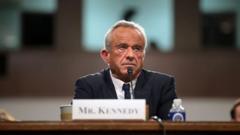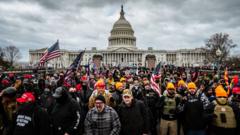Former President Donald Trump has publicly expressed his desire to eradicate daylight saving time (DST), labeling it as "inconvenient" and "very costly" for the American populace. DST involves shifting clocks forward by one hour in the spring and reverting them back in the fall to optimize daylight usage. While a large portion of the world, including most of Europe, observes DST, there has been a growing faction in the US advocating for its cessation. Proponents argue that eliminating this practice could lead to brighter afternoons and stimulate greater economic activity.
Trump Proposes Elimination of Daylight Saving Time for Economic Gains

Trump Proposes Elimination of Daylight Saving Time for Economic Gains
In a recent statement, Donald Trump has laid out his vision to abolish daylight saving time, emphasizing its undue burden on American citizens.
In a recent post on his social media platform Truth Social, Trump intimated that, despite a "small but strong constituency" in favor of DST, it should be discontinued. He asserted that his Republican party is committed to this agenda, marking a potential shift in timekeeping conventions in the nation.
This is not the first Advocacy for Chaging the System in Recent Years. In 2022, the Democratic-controlled Senate passed legislation aimed at adopting permanent daylight saving time to leverage brighter evenings, particularly benefitting those commuting post-work or school. Nevertheless, the proposed Sunshine Protection Act, set forth by Republican Senator Marco Rubio, ultimately stalled and never reached President Joe Biden's desk. Rubio, now aligned with Trump as a potential secretary of state, previously highlighted studies that linked a permanent shift to daylight saving time with economic benefits.
As discussions around this topic evolve, the implications of changing or eliminating DST will have to be weighed against public opinion and potential economic outcomes.
This is not the first Advocacy for Chaging the System in Recent Years. In 2022, the Democratic-controlled Senate passed legislation aimed at adopting permanent daylight saving time to leverage brighter evenings, particularly benefitting those commuting post-work or school. Nevertheless, the proposed Sunshine Protection Act, set forth by Republican Senator Marco Rubio, ultimately stalled and never reached President Joe Biden's desk. Rubio, now aligned with Trump as a potential secretary of state, previously highlighted studies that linked a permanent shift to daylight saving time with economic benefits.
As discussions around this topic evolve, the implications of changing or eliminating DST will have to be weighed against public opinion and potential economic outcomes.






















